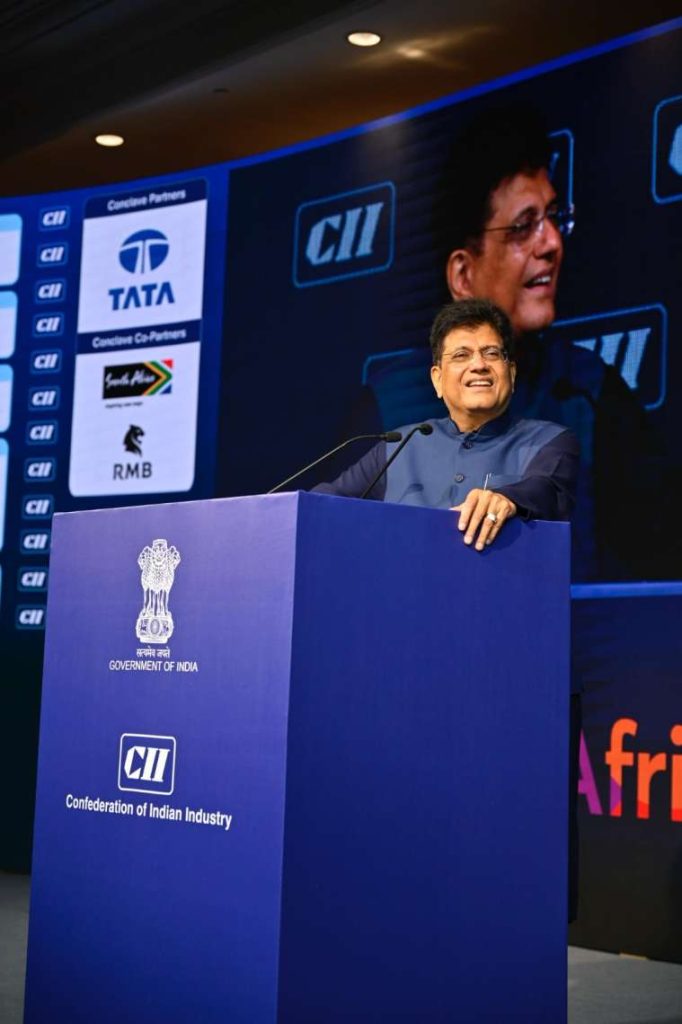India and Africa pledge to double trade by 2030, focusing on cars, energy, digital finance, healthcare and value-added growth to empower youth and economies.
India and Africa are set to deepen economic ties with a shared goal of doubling bilateral trade by 2030, Union Commerce and Industry Minister Piyush Goyal announced on Friday. Speaking at the valedictory session of the 20th CII India-Africa Business Conclave in New Delhi, Goyal said the partnership would prioritise value addition, technology-driven agriculture, renewable energy, healthcare, and digital solutions.
India’s current trade with Africa stands at $42.7 billion in exports and $40 billion in imports, a balance Goyal described as “encouraging but far from the true potential.” He noted that the trade gap reflects untapped opportunities and urged both regions to shift focus from raw material exports to manufacturing and value-added production aimed at global markets.
Highlighting complementarities, Goyal said India could help Africa strengthen food security, healthcare, education, skills training, and digital connectivity, while Africa could meet India’s growing demand for energy, critical minerals, and farm produce. He also underlined the scope for cooperation in the automobile sector, pointing out that Africa imports vehicles worth $20 billion annually but India currently supplies only $2 billion. With competitive pricing and quality, Indian passenger vehicles, commercial fleets, two- and three-wheelers, and affordable electric mobility could play a transformative role in Africa’s transport landscape, he added.

The minister emphasised that Africa’s billion-plus population shares aspirations similar to India’s ambition of becoming a developed nation by 2047. He cited synergies in technology, IT, telecom, AI, and medical tourism as key growth areas, while also pitching India’s digital public infrastructure, particularly the Unified Payments Interface (UPI), as a tool that could cut transaction costs and strengthen African financial systems.
India’s partnership with Mauritius was cited as an example of how New Delhi has supported African nations in easing inflationary pressures, particularly on food essentials. Goyal framed the India-Africa bond as one rooted not just in commerce but in shared struggles and history, recalling Mahatma Gandhi’s years in South Africa as a symbol of solidarity.
“India and Africa together represent over two billion people and one-third of the world’s population,” Goyal said, urging African countries to join India on global platforms like the WTO. “Our relationship is not just about history or trade — it is about shared dreams, shared challenges, and shared solutions.”
He concluded by calling the partnership between India and Africa a strategic alliance for the future, with the potential to transform economies, empower youth, and ensure prosperity across both regions.














